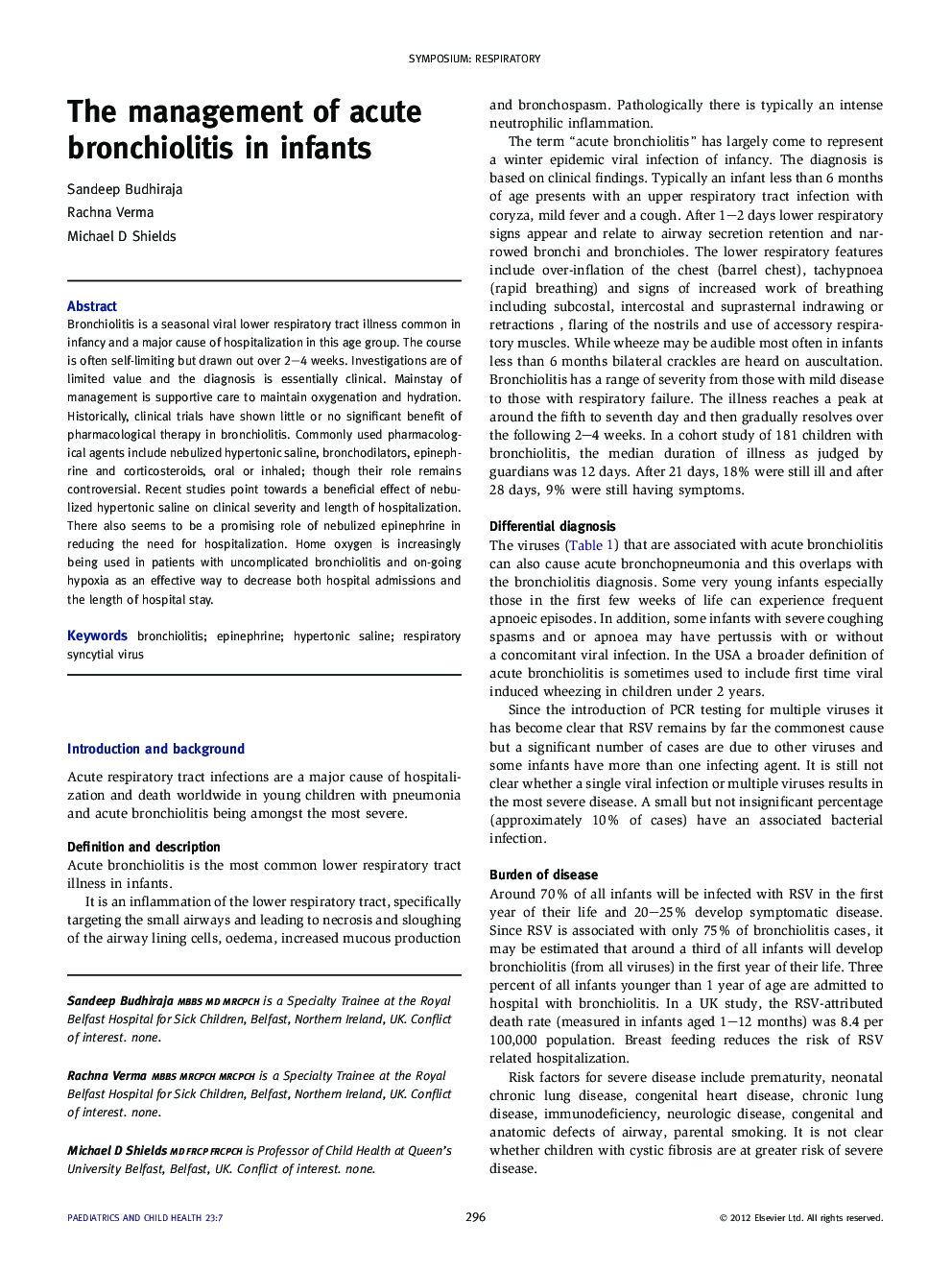| Article ID | Journal | Published Year | Pages | File Type |
|---|---|---|---|---|
| 4172313 | Paediatrics and Child Health | 2013 | 5 Pages |
Bronchiolitis is a seasonal viral lower respiratory tract illness common in infancy and a major cause of hospitalization in this age group. The course is often self-limiting but drawn out over 2–4 weeks. Investigations are of limited value and the diagnosis is essentially clinical. Mainstay of management is supportive care to maintain oxygenation and hydration. Historically, clinical trials have shown little or no significant benefit of pharmacological therapy in bronchiolitis. Commonly used pharmacological agents include nebulized hypertonic saline, bronchodilators, epinephrine and corticosteroids, oral or inhaled; though their role remains controversial. Recent studies point towards a beneficial effect of nebulized hypertonic saline on clinical severity and length of hospitalization. There also seems to be a promising role of nebulized epinephrine in reducing the need for hospitalization. Home oxygen is increasingly being used in patients with uncomplicated bronchiolitis and on-going hypoxia as an effective way to decrease both hospital admissions and the length of hospital stay.
